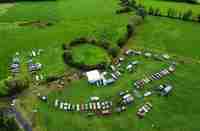Road fatality increases show urgent need for more safety measures
The last few days have seen the town of Clonmel and its environs come to a standstill, as funerals take place to mark the deaths of the four young people who died in a road traffic collision at the end of last month: Nicole Murphy (18), Zoey Coffey (18), and siblings Grace (18) and Luke McSweeney (24).
The crash occurred when, amid heavy rain, the car the four were travelling in flipped over and hit a wall on Clonmel’s Mountain Road. The three teenage girls had been on their way to celebrate their leaving certificate results in Carlow, being driven there by the older McSweeney.
When news of the crash came out, the entire country was, of course, both deeply shocked and incredibly saddened to learn of their passings. What struck a lot of people was the age of the victims and the circumstances under which they had been travelling. All four victims were so young to have lost their lives, but when it comes to the three teenagers, many have pointed out how especially saddening it was to note that the night they passed away should’ve been a night of celebration, a night symbolic of all they had ahead of them and the beginning of their adult lives.
It is the same heavy feeling the country experienced a few months ago when Leaving Cert students Andrew O’Donnell and Max Wall passed away. The two had gone on holiday with friends to the Greek island of Ios to celebrate the end of their exams, and died just hours apart, both aged just 18-years-old.
It goes without saying that any loss of life is a tragedy, regardless of the person’s age. But when the period of post-Leaving Cert holidays and exam results nights out brings with it the news of young students’ deaths, it of course feels like another cruel dimension to the tragedy. These students should’ve had their entire lives ahead of them and should’ve been able to celebrate that… to celebrate their Leaving Cert and the end of their second-level schooling, without it having ended in the loss of their lives.
And of course that’s another thing that goes without saying – that neither of these tragedies should’ve occurred. Just as it goes without saying that if anyone could’ve, they’d have done all they could to prevent them.
And while it is harder to imagine how to go about prevention measures for the likes of what happened in Greece, accidents like the recent Clonmel one might be a different story. While it is understood that heavy rainfall played a ‘significant role’ in leading to the Clonmel crash, technical investigators have also commented that they are continuing to examine several other potentially contributary factors, including the speed at which the car was travelling, the condition of the vehicle and its tyres, and the condition of the road.
Whether these other road safety concerns came into play in any significant way is relevant beyond this tragedy; the deaths of these four young people in this road accident is not only brought home further due to the deaths of the students in Greece that preceded them earlier this summer, but also by the significant amount of fatal road accidents this year that also preceded the crash.
According to recent reports, 127 people have been killed in road traffic collisions so far in 2023. With nearly four months still to go, this year has almost reached the same number of road fatalities that 2022 reached in total (155) – the figure so far is 25% higher than at this point last year – and 2022 had already seen an increase of 13% on 2021. Even anecdotally, it’s hard not to notice the increase just from reading headlines; news of a road tragedy has barely sunk in before the next sad bulletin follows.
For example, when the Clonmel crash occurred, the country was still reeling from hearing about the deaths of two teenage pupils and the fall-out following a crash in Monaghan, which occurred just a couple weeks previously. Last month in fact (when both road tragedies occurred) saw literally twice the amount of road fatalities recorded compared to August 2022.
Reportedly, the number of road deaths this year is on course to reach around 168, which would be the highest since 2016. And while it is worth noting that there has indeed been huge progress over the years in reducing fatalities, the RSA (Road Safety Authority) have warned that Ireland is in danger of losing momentum on improving road safety.
Given all this, this week saw Minister of State with responsibility for road safety Jack Chambers indicate that speed limits are going to be reduced as part of plans being developed by the Government to improve road safety. The clampdown will also include increasing the number of penalty points for motorists who are detected committing more than one driving offence, and additionally, more minor offences, such as the use of a mobile phone while driving and not using a seatbelt will be penalised more.
These changes are very welcome and undoubtedly reflective of recent RSA comments, which suggested a major factor that may be contributing to this recent increase (aside from the obvious spike in road traffic since the pandemic, during which there understandably were less incidents) might be careless driving practices. But as much as these measures are welcome and needed, it would be good to see more infrastructural solutions being implemented as well.
For example, last year it was found that the majority of road deaths occur on rural roads. As such, I think it is also important to focus on the issues that lead to this, like poor road surface conditions, inadequate signage, and the lack of crash protection, such as barriers. Considering too that half of those injured seriously in road accidents last year were not drivers but pedestrians, cyclists, motorcyclists, etc., looking at effective ways of improving footpaths and cycle lanes could do a lot to improve general road safety.
I also wonder if this is yet again another area that would benefit from improving public transport options and accessibility. If less cautious drivers are a major issue, surely an uptick in public transport use could drastically reduce the amount of distracted and inexperienced drivers on the roads. I also understand the RSA recently highlighted how drink-driving remains a significant problem, and while I by no means wish to suggest there’s any excuse for inebriated driving (there isn’t), I think there are a certain amount of people who ‘chance’ driving after the few because they simply can’t get a taxi, or because buses in their city stop too early. So perhaps if there was something done to increase public transport hours and support public service vehicles, drink-driving instances could easily be reduced.
I really do hope real infrastructural changes are put in place in the near future to tackle the issue of road fatalities in a more long-term way – but in the meantime, it is reassuring to at least see some road safety measures coming in in the short-term. After all, we can’t just continue seeing fatal road accident after fatal road accident in the headlines, and have little or nothing being done.
As anyone who’s lost someone will know, there is nothing that can be done now to assuage the grief being felt by the loved ones of the victims of the Clonmel crash, bar showing respect for their privacy as they mourn, just as is the case with all those who lost loved ones in other road accidents this year. But hopefully something can be done to avoid more accidents like this happening in the future and to break the trend of increased fatalities we’ve been seeing recently.
I cannot imagine what all those who knew the young Leaving Cert students, and all the victims of this year’s road fatalities, are going through, and like the rest of the country, my thoughts are with their families and friends as they grieve their loved ones. I hope that in the near future, whatever possible measures can be put in place to prevent further similar tragedies are implemented with urgency.






